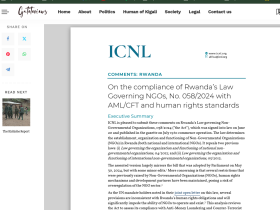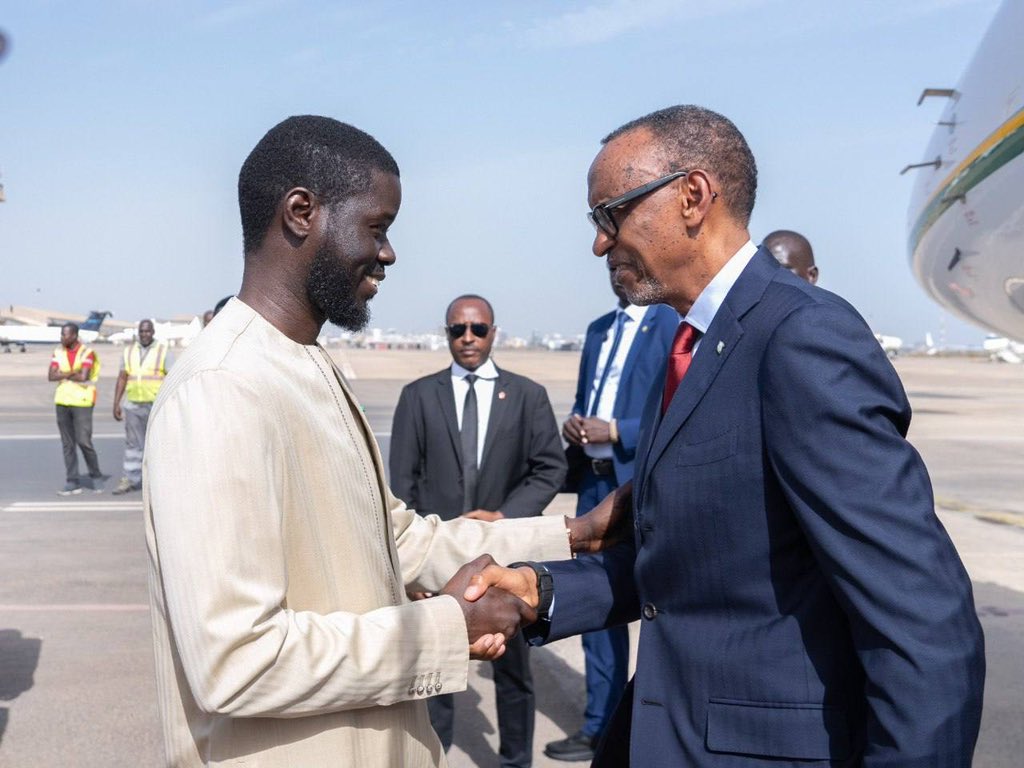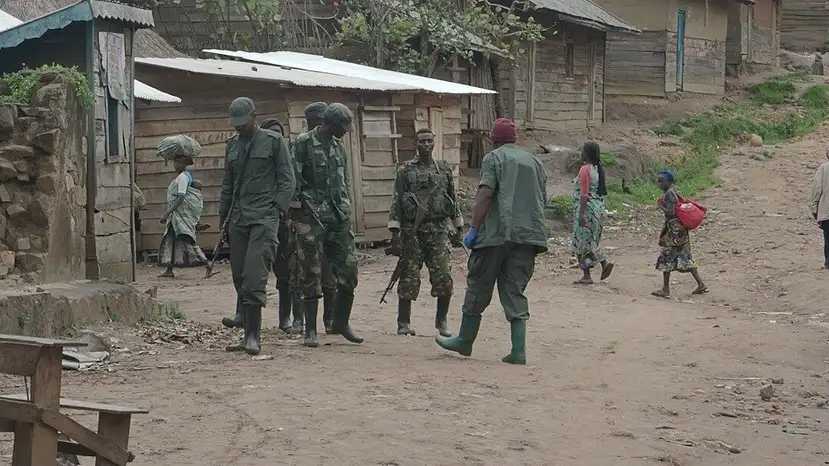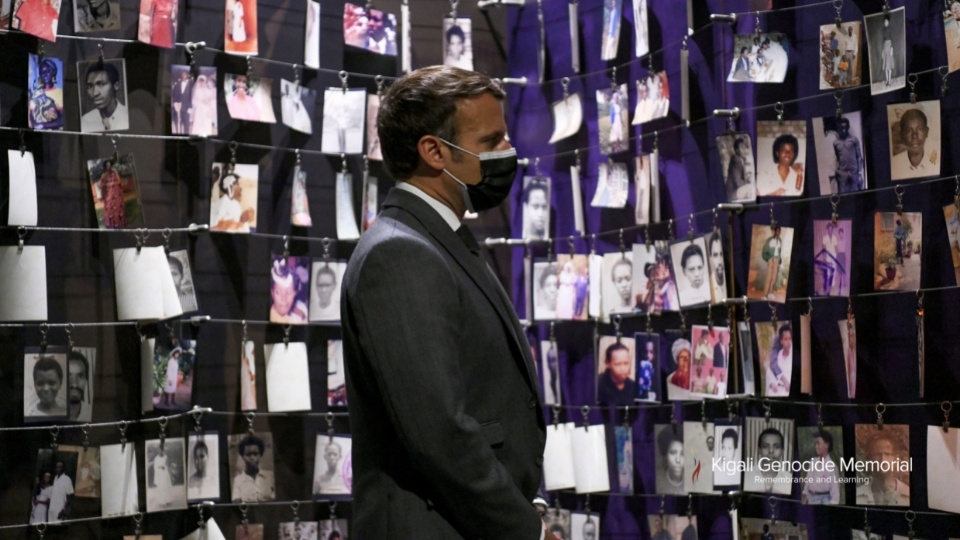Recent remarks by Tanzanian president, advising Rwandan authorities to negotiate with the FDLR, show that he does not grasp regional dynamics; that he has a different theory of the genocide and that he has a problem with Rwanda’s foreign and national security policies.
Tanzanian citizens claim that Kikwete’s advice was merely bonafide and peace-inspired; them I can undersatand. As for their leader, I have my reservations. He was minister of foreign affaires when the genocide of Tutsi took place and he is aware of the agenda of the FDLR to wipe Tutsis off the face of the earth; ‘to finish the job’ as they call it. As an East African head of state, a man whom, I presume, holds the interests of the whole region at heart, Tanzanians and Rwandans alike, I thought that was an irresponsible misstep which has emboldened the FDLR, and is counterproductive, in many aspects, to the stabilization force that Tanzania has just deployed in the Eastern DRC
Granted Kagame’s ‘I will hit you’ reaction to the remarks lacks diplomacy. But it only illustrates how apprehensive Rwandans get, but also how far they are ready to go, to fight the genocide and its ideology.
Remarks of the kind of Kikwete’s; Rwandans have heard them before. That and more theories of genocide denial, sanitising perpetrators, etc.; It is a recurrent behavior in any post genocide society: Apparently one looks ‘clever’ and ‘interesting’ when they say something in the opposite direction of reason… I should know, I worked for NGOs…
For instance, when I met Steve Hegues, at the time when he was head of the UN Group of Experts (GoE), he told me that FDLR members were unable to comeback because of the absence of political and media freedom in Rwanda. Of course he failed to explain how they were planning to bring about political change in Rwanda by raping and killing innocent civilians in Congo. I remember that, on the same day, when he was given the floor, he simply ruled out FDLR’s genocide record as a possible reason to remain on the run, and went on to lay out his plans on how Rwanda’s aid should be cut by the international community, until they negotiate with FDLR.
To me, that story was not new, because I had read all of it on his blog; here. So when the GoE report came out, I was not surprised by its content and intent. And it was partly successful too, in provoking international pressure and aid cuts on Rwanda. One thing it did not succeed though, was to bear the FDLR a legitimate political cloth; which is what Kikwete is trying to achieve today.
Trying to portray the FDLR as a political movement clamoring for political liberation of Rwanda, while ignoring the fact that it is a group made of genocidaires who killed over a million of Tutsis and moderate Hutus in 1994, we’re defeated, fled into DRC, carried on with their killings, raping and looting, indiscriminately; that’s pure demagoguery and can only deceive Tanzanians.
To set the records straight, On June 30th this year, the UNHCR in collaboration with host countries declared a secession clause on all Rwandan refugees, noting that ‘the conditions that led Rwandans to flee were no longer present in the country, hence, Rwandans no longer had cause to seek asylum’ this declaration followed a consistent ‘come and see, go and tell’ initiative run for more than a decade by the Rwandan government, to encourage Rwandan refugees in camps around the world to send emissaries to tour the country and confirm that the situation was conducive, then go and tell those left in the camps to return home.
Most of Rwandan refugees, including former FDLR leaders have returned home. Some reintegrated into the army. Everyday hundreds of Rwandan returnees are received, rehabilitated and reintegrated into the community with start up seeds, field for farming, free school for children and free health coverage for the whole family.
Previously, in a complaint brought by the DRC against Rwanda, the International Court of Justice, ruled that Rwanda’s military intervention into the DRC was justified.
Prior to Rwanda’s military intervention, former genocide perpetrators had withdrawn into the eastern DRC, from where they carried on with their genocide agenda. Military training, Infiltrating Rwanda’s territory and committing more massacres targeting civilian Tutsis, from their Mugunga base/refugee camp – set up less than 30 kilometers from Rwanda’s border, in violation of all international refugee conventions, and despite Rwanda’s repeated requests for their resettlement deeper into the DRC.
When the Rwandan army (RDF) invaded the DRC it operated under the political representation of Laurent Desire Kabila, a Congolese who had lived in Tanzania for many years and had been Mobutu’s weak opponent. He had been introduced to Kagame by Tanzania and Uganda, and as a Congolese, was presented as the leader to give legitimacy to the intervention. The campaign was able to topple Mobutu, Zairian historic dictator, but upon victory, Rwanda’s military-like security and governance reforms were seen as upsetting and harsh to the Congolese corrupt and complaisant establishment – Kabila (the father) included. He unceremoniously demanded them to depart in a sensational announcement on national television. The announcement and the manner in which it was made, damaged the image of the RDF in the eyes of the Congolese population. Overnight, they had shifted from being seen as liberators to being seen as an occupation force.
However Kabila did this, with no clear idea as to whom was to replace the Rwandan army in securing his immense territory. RDF’s departure meant the resurrection of all sorts of militias, including the FDLR, which had been weakened and pushed deeper into Congo’s dense equatorial forest, and their resumption of killings of Tutsis; this time targeting Congolese Tutsis and other civilians.
This prompted the creation of a Tutsi protection movement; the CNDP, which, supported by Rwanda, launched the second Congo war against Kabila. During this war, Kabila received military support of three SADC countries: Namibia, Zimbabwe and Angola on the one hand, and collaboration with the FDLR on the other. All of Kabila’s supporters were defeated…
Although its has been repeatedly denied by Rwanda, it is not hard to imagine why the M23 would receive support of Rwandans and others who fight the genocide. The movement has provided a buffer zone somewhat, between the FDLR and Rwandan territory and has secured Congolese Tutsi citizens. But unfortunately it has created even more anti-tutsi resentment among other Congolese tribes who see the M23 as a proxy of the Rwandan Army. Their integration into the DRC army has been made difficult by their request not to be deployed to other regions of the Congo, insisting that that would defeat their mission to defend their community in the Kivu. They also feared it was a strategy used by Kabila to weaken their movement.
Despite everyone’s belief, Rwanda does not go into DRC to steal gold and diamond, etc., which is just laying there – On a daily basis, I meet intellectuals who simplistically reduce Rwanda’s development to foreign aid and Congo’s minerals. I do not blame them because in most countries on the continent development is limited to minerals and aid. They don’t believe in my stories of job creation and entrepreneurship.
The truth of the matter is that DRC statelessness has posed serious security threats to all its neighboring countries in the last two decades. The country is a failed state with deep forests, abundant natural resources and an unemployed youth; In other words, it is a rebels’ paradise.
Soldiers are so unruly they spend more time playing – what was referred to in past Sierra-Leonean conflict as ‘sobels’: soldiers by day, rebels by night. Seven of DRC’s neighboring counties, namely Rwanda, Burundi, Angola, Uganda, Central African Republic, Sudan and Republic of Congo have all suffered instability from rebel movements operating in the DRC.
Contrary to Kikwete’s ‘enlightened’ advice, FDLR members are not interested in negotiations: they are genocide fugitives, reigning over an army of child soldiers – their own children – indoctrinated with anti-tutsi ideology for years; running very lucrative mining business in the DRC and wrecking havoc with frequent ‘operation pay yourself’ raids on civilians, sometimes with the help the government army.
Many of them have sent their wives and younger children to Rwanda to lead stable existences, with monthly ‘money collection’ visits into the DRC. They know that they have no future in Rwanda or anywhere else in the world, and refuse to set their older children free. So the FDLR is not interested in peace negotiations. As a world bank report succinctly puts it : ‘asking a rebel leader to accept peace may be little like asking a champion swimmer to empty the pool’.
So, while I understand Congo’s frustration towards the M23, and its possible Rwanda’s backing, I do not understand their choice to reject Rwanda’s military support and chose that of FDLR instead;
While I understand Kikwete’s call for ‘kumbaya’, as a peaceful avenue to the Eastern DRC conflict, I do not understand his choice, not to call on both Rwanda and DRC to work together and neutralize negative forces, but his choice to give a political etiquette to the FDLR instead;
While I appreciate the effort of the intervention brigade, made mainly of South African and Tanzanian troupes to help African brothers in the DRC, I do not understand the wisdom behind not seeking collaboration with the Rwandan army, but choose to hold frequent meetings with FDLR leaders instead.
People say Rwandan have instrumentalised the genocide. To them I say, well you cannot put yourselves in Rwandan people’s shoes; I do not expect you to; I do not ask you to. I do know though, that one Tutsi killed in the DRC and anywhere else, is not merely one tutsi: it is the one million and oneth. No politics, no relativism, no negotiation will stop Rwandans from intervening there.
Most of us were born in exile and in refugee camps and had to fight our way back home. So we know that one must earn his dignity and fight for his security. Like Kagame said, ‘we have not change. We are still the same people we used to be’. turacyari babandi…


















Leave a Reply